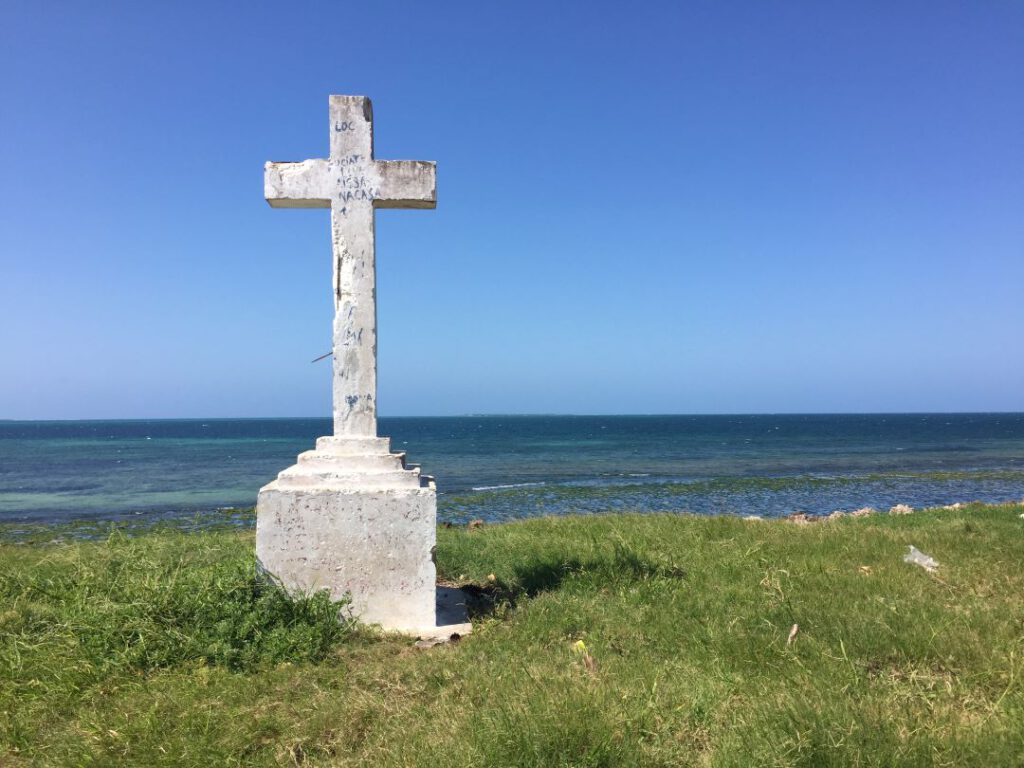
That, as the Comboni Family, we may seek out those far from the faith and be instruments of en-counter with the Lord Jesus and the Gospel of life, in every part of the world. Let us pray.
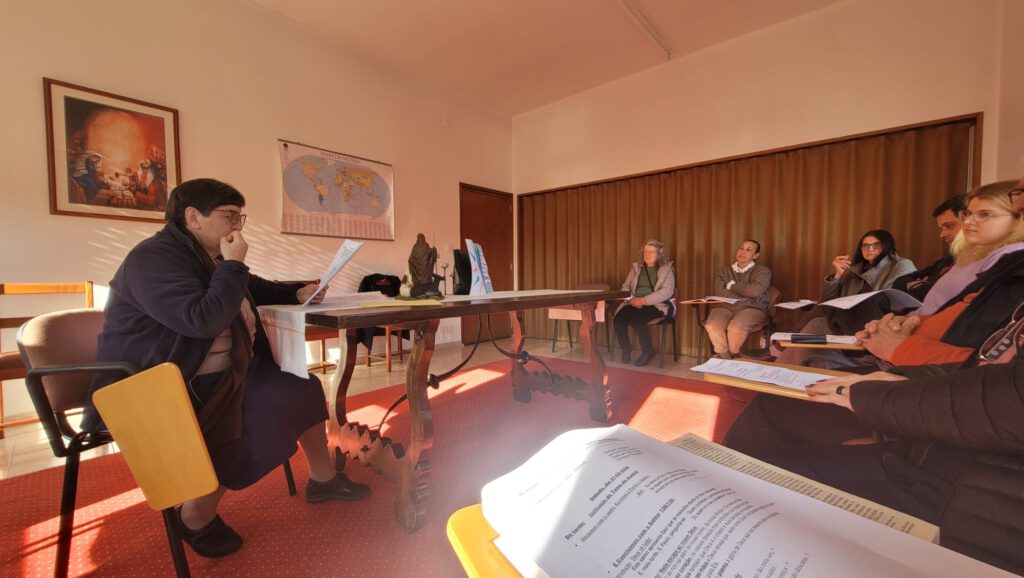
This year, the CLM Lenten Retreat gave me the opportunity to visit and deepen God’s Covenant with me and with us.
With His Grace, I was able to remember more or less obvious truths and discover other more subtle, but also more revealing ones.
What is the extent of this Covenant?
To begin with, God reminded me that His Covenant is eternal.
But He also revealed to me that this eternity is not limited to “my eternity,” but extends to all who dwell in “my house” (cf. Gen 17:7), that is, all the people whose lives intersect with mine in some way, especially those closest to me.
Lord, I walk through my life in the palm of Your hands, distracted, entertained by what distances me from You, forgetting the Eternal Covenant that You made and always make with me and with my loved ones.
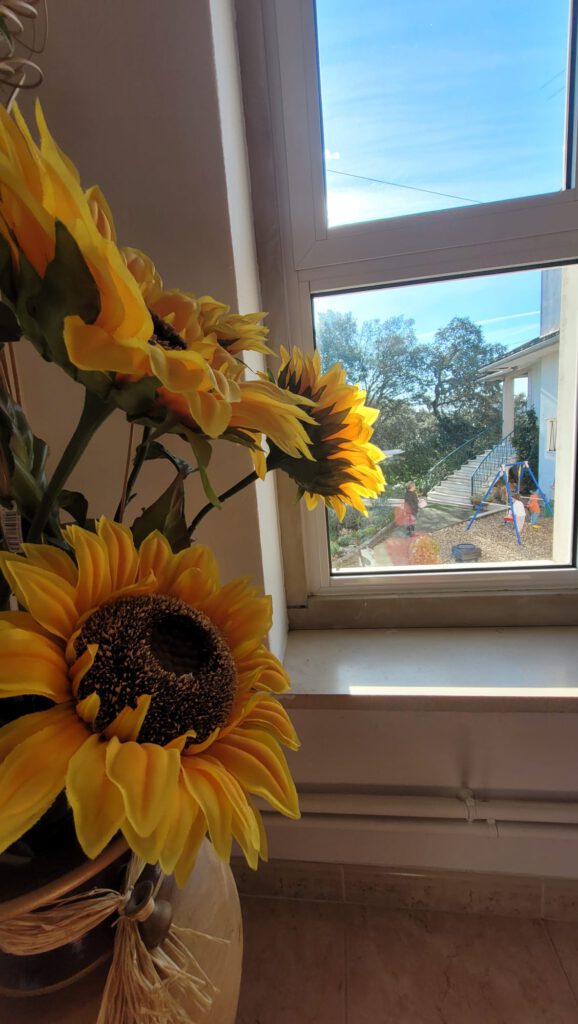
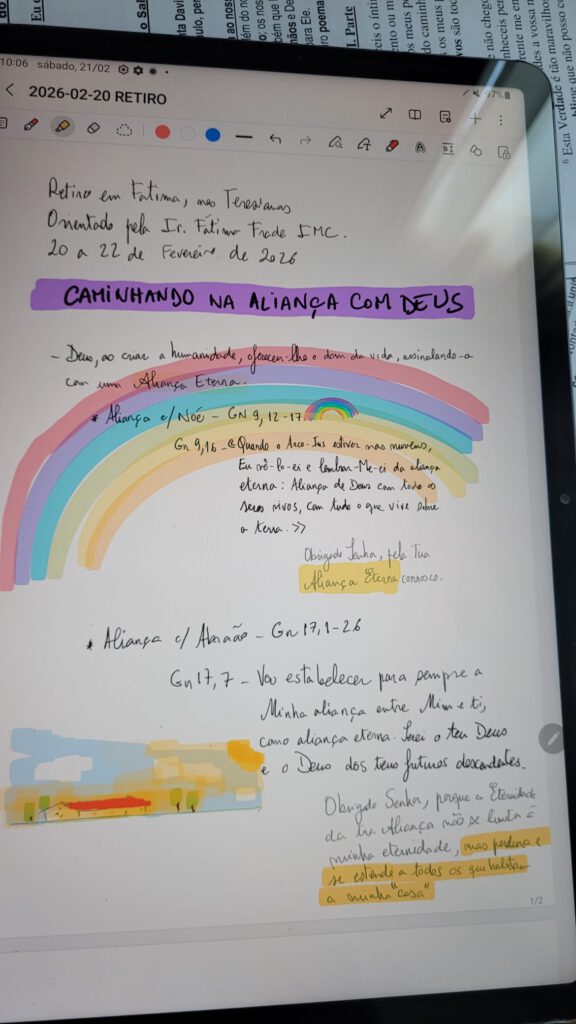
How blind I am!
How is it possible not to see You clearly in every encounter with others, especially those closest to me?
In every encounter I have, my heart should rejoice: “Courage! Let’s go to Heaven together!”
As St. Edith Stein said (more or less): “Lord, You never cease to take me out of the nothingness that I am, to bring my whole ‘house’ to You who are Everything!”
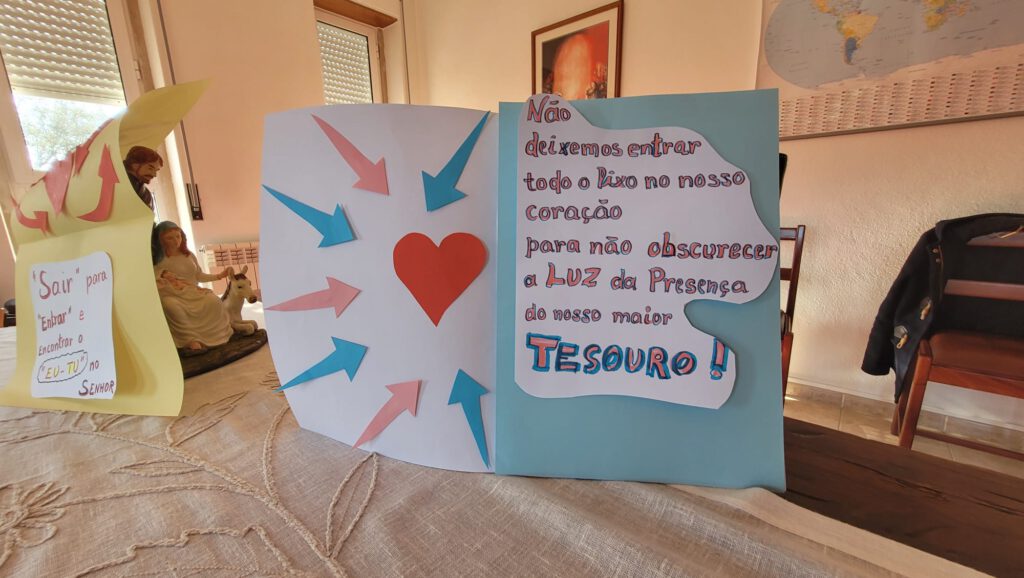
What a joy that You want me whole, with everyone who is part of my history, everyone, everyone, everyone, no matter how fleeting their passage through my life may have been!
And what a joy to know that You also find and desire me, through my presence (however fleeting it may be) in the lives of so many with whom You also establish Your Eternal Covenant!
What is our part in this Covenant?
God said:
– Hear, O Israel! (Cf. Deut. 6:4)
– Hear, O Adam! (Cf. Gen. 3:9)
– Where are you?
– Come out from among the trees of the garden where you hide from My loving Voice.
Behold, I have made a tunic (cf. Gn 3:22) to protect your heart from the cold that your estrangement generates in you (and in Me).
Behold, I have dressed you and imposed it on you, because I love you and do not want to lose you.
This tunic is My Law, it is the SHEMÁ (Dt 6:4-11).
Use all your heart, all your soul, all your strength to keep it.
This is My Covenant. If you walk in it, you and your household will be happy!
What guarantees do we have that the Covenant will not be broken?
The simple fact that God declared to Noah the eternity of His Covenant with us would be more than enough.
But God has reiterated this reality countless times throughout the history of salvation, despite humanity’s successive infidelities.
As if that were not enough, in the fullness of time, He gave His own Son to pay our ransom.

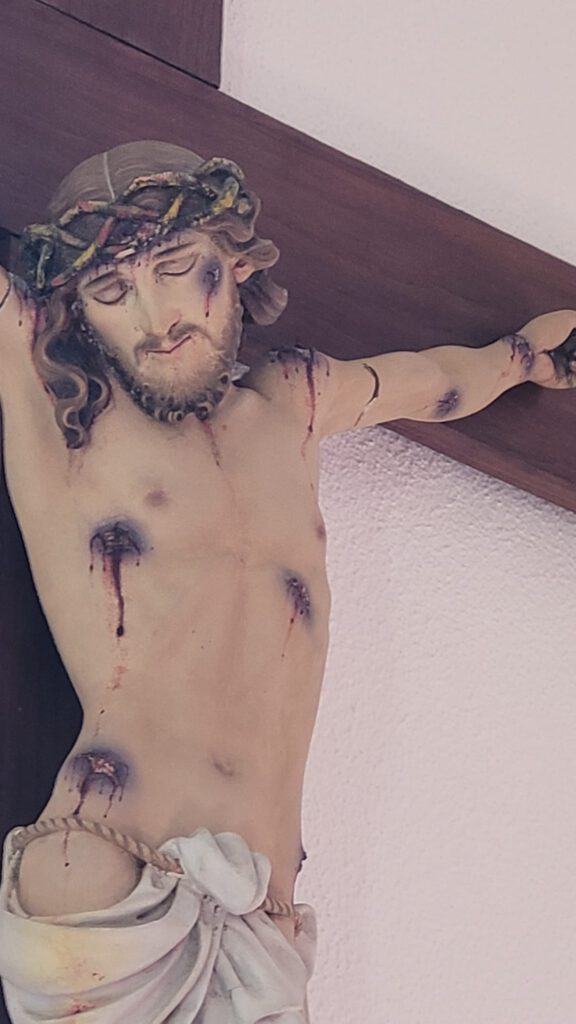
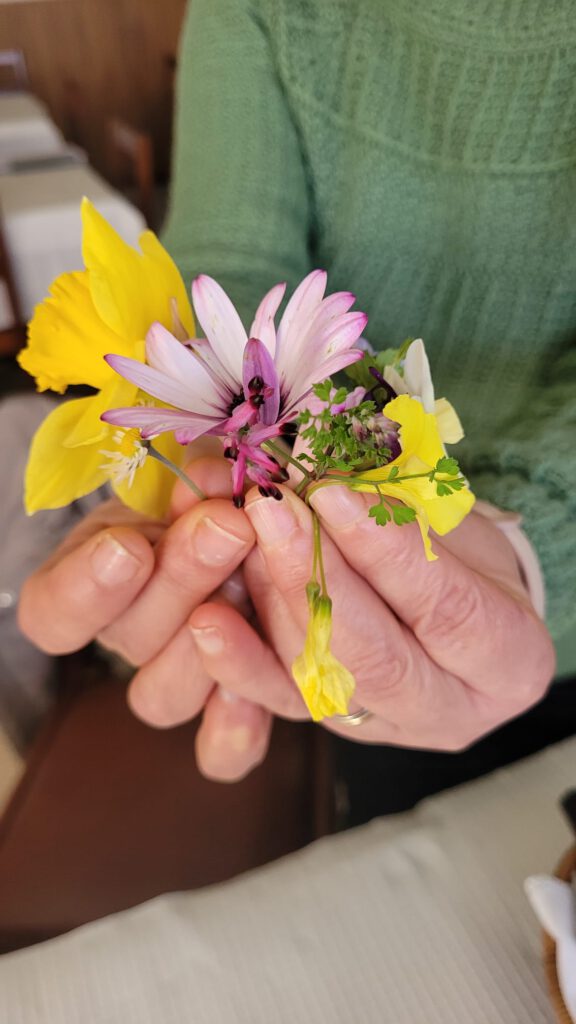

Jesus was nailed to the Cross, with no chance of escape or withdrawal. God gave everything for me, for my loved ones, for all of us!
The Eternal Covenant of immeasurable and infinite Love is only a yes away.
May God, through the intercession of Mary, all of Heaven, and our brothers and sisters on earth, help us to let down our guards and accept His plans for eternal and happy life!
I sincerely thank our sister, Sr. Fátima Frade, for all her work in preparing the retreat.
I also thank the Teresian Sisters for their kindness and hospitality in welcoming us once again to their home in Fátima.
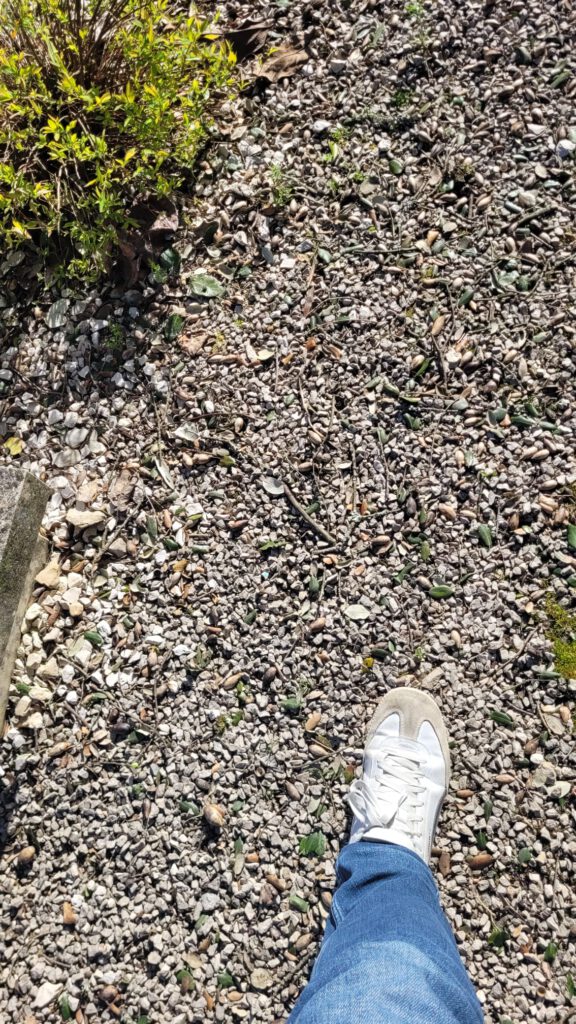
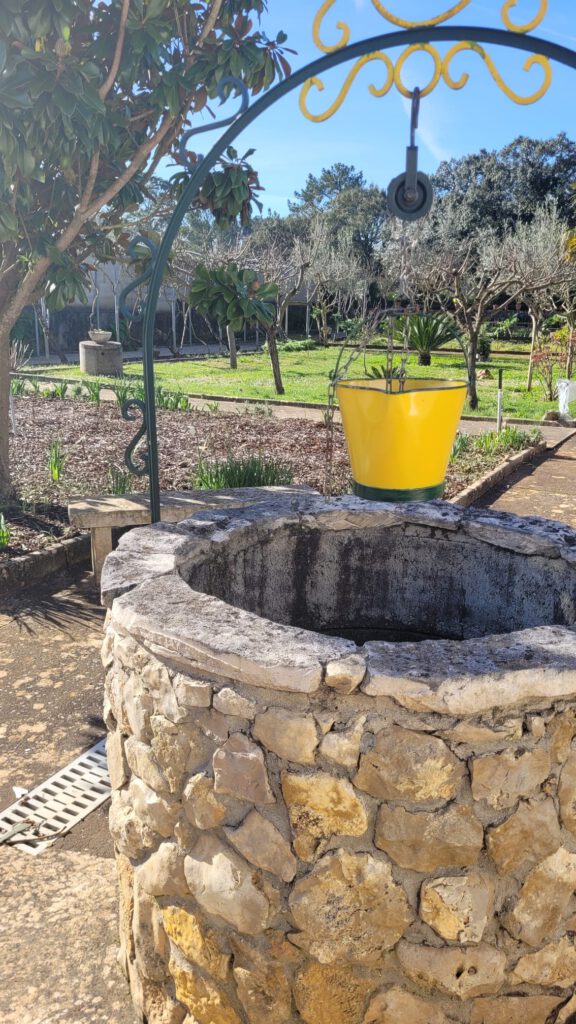
I wish everyone a Holy Lent as we journey towards the Lord’s Easter.
Pedro Moreira, CLM Portugal
Here is the link to how it appeared on the Portuguese blog:
https://leigosmissionarioscombonianos.blogs.sapo.pt/caminhando-na-alianca-com-deus-179331?tc=221931442240
February 19 will be remembered as a special day in the history of our missionary community
On this day, Neema Makori – as the first among the Kenyan Lay Comboni Missionaries – departed for a three-year mission to the Central African Republic. This event carries special significance – it is a sign of the growth and maturity of the missionary vocation of the laity in Kenya, and a beautiful testimony of courage, faith, and readiness to serve those most in need.
A missionary departure is not only a journey to another country. It is a response to the call of the heart, a decision to share life with the local community, to be close to people in their daily joys and struggles. Three years of service is a time for building relationships, learning a new culture and language, and growing together in faith.
Before her departure, Neema was bid farewell by fr. Maciek, Comboni Lay Missionaries and her closest family members. It was a moment filled with emotion, prayer, and gratitude. Together, they entrusted her journey to God, asking for the necessary graces, strength, health, and peace of heart throughout her mission.
We are proud and grateful for her witness. May this new chapter be a time of abundant fruits, mutual enrichment, and a deep experience of God’s presence each day.
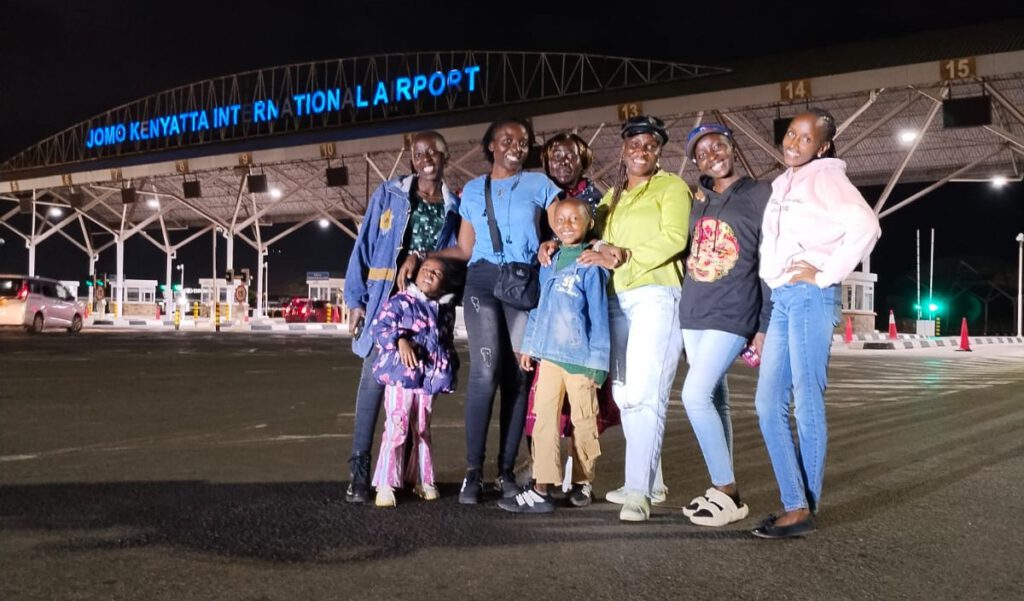
Neema – we are with you in heart and prayer!
CLM Kenya
Listening and Fasting: Lent as a Time of Conversion
Dear brothers and sisters,
Lent is a time in which the Church, guided by a sense of maternal care, invites us to place the mystery of God back in the center of our lives, in order to find renewal in our faith and keep our hearts from being consumed by the anxieties and distractions of daily life.
Every path towards conversion begins by allowing the word of God to touch our hearts and welcoming it with a docile spirit. There is a relationship between the word, our acceptance of it and the transformation it brings about. For this reason, the Lenten journey is a welcome opportunity to heed the voice of the Lord and renew our commitment to following Christ, accompanying him on the road to Jerusalem, where the mystery of his passion, death and resurrection will be fulfilled.
Listening
This year, I would first like to consider the importance of making room for the word through listening. The willingness to listen is the first way we demonstrate our desire to enter into relationship with someone.
In revealing himself to Moses in the burning bush, God himself teaches us that listening is one of his defining characteristics: “I have observed the misery of my people who are in Egypt; I have heard their cry” (Ex 3:7). Hearing the cry of the oppressed is the beginning of a story of liberation in which the Lord calls Moses, sending him to open a path of salvation for his children who have been reduced to slavery.
Our God is one who seeks to involve us. Even today he shares with us what is in his heart. Because of this, listening to the word in the liturgy teaches us to listen to the truth of reality. In the midst of the many voices present in our personal lives and in society, Sacred Scripture helps us to recognize and respond to the cry of those who are anguished and suffering. In order to foster this inner openness to listening, we must allow God to teach us how to listen as he does. We must recognize that “the condition of the poor is a cry that, throughout human history, constantly challenges our lives, societies, political and economic systems, and, not least, the Church.”[1]
Fasting
If Lent is a time for listening, fasting is a concrete way to prepare ourselves to receive the word of God. Abstaining from food is an ancient ascetic practice that is essential on the path of conversion. Precisely because it involves the body, fasting makes it easier to recognize what we “hunger” for and what we deem necessary for our sustenance. Moreover, it helps us to identify and order our “appetites,” keeping our hunger and thirst for justice alive and freeing us from complacency. Thus, it teaches us to pray and act responsibly towards our neighbor.
With spiritual insight, Saint Augustine helps us to understand the tension between the present moment and the future fulfilment that characterizes this custody of the heart. He observes that: “In the course of earthly life, it is incumbent upon men and women to hunger and thirst for justice, but to be satisfied belongs to the next life. Angels are satisfied with this bread, this food. The human race, on the other hand, hungers for it; we are all drawn to it in our desire. This reaching out in desire expands the soul and increases its capacity.”[2] Understood in this way, fasting not only permits us to govern our desire, purifying it and making it freer, but also to expand it, so that it is directed towards God and doing good.
However, in order to practice fasting in accordance with its evangelical character and avoid the temptation that leads to pride, it must be lived in faith and humility. It must be grounded in communion with the Lord, because “those who are unable to nourish themselves with the word of God do not fast properly.”[3] As a visible sign of our inner commitment to turn away from sin and evil with the help of grace, fasting must also include other forms of self-denial aimed at helping us to acquire a more sober lifestyle, since “austerity alone makes the Christian life strong and authentic.”[4]
In this regard, I would like to invite you to a very practical and frequently unappreciated form of abstinence: that of refraining from words that offend and hurt our neighbor. Let us begin by disarming our language, avoiding harsh words and rash judgement, refraining from slander and speaking ill of those who are not present and cannot defend themselves. Instead, let us strive to measure our words and cultivate kindness and respect in our families, among our friends, at work, on social media, in political debates, in the media and in Christian communities. In this way, words of hatred will give way to words of hope and peace.
Together
Finally, Lent emphasizes the communal aspect of listening to the word and fasting. The Bible itself underlines this dimension in multiple ways. For example, the Book of Nehemiah recounts how the people gathered to listen to the public reading of the Law, preparing to profess their faith and worship through fasting, so as to renew the covenant with God (cf. 9:1-3).
Likewise, our parishes, families, ecclesial groups and religious communities are called to undertake a shared journey during Lent, in which listening to the word of God, as well as to the cry of the poor and of the earth, becomes part of our community life, and fasting a foundation for sincere repentance. In this context, conversion refers not only to one’s conscience, but also to the quality of our relationships and dialogue. It means allowing ourselves to be challenged by reality and recognizing what truly guides our desires — both within our ecclesial communities and as regards humanity’s thirst for justice and reconciliation.
Dear friends, let us ask for the grace of a Lent that leads us to greater attentiveness to God and to the least among us. Let us ask for the strength that comes from the type of fasting that also extends to our use of language, so that hurtful words may diminish and give way to a greater space for the voice of others. Let us strive to make our communities places where the cry of those who suffer finds welcome, and listening opens paths towards liberation, making us ready and eager to contribute to building a civilization of love.
I impart my heartfelt blessing upon all of you and your Lenten journey.
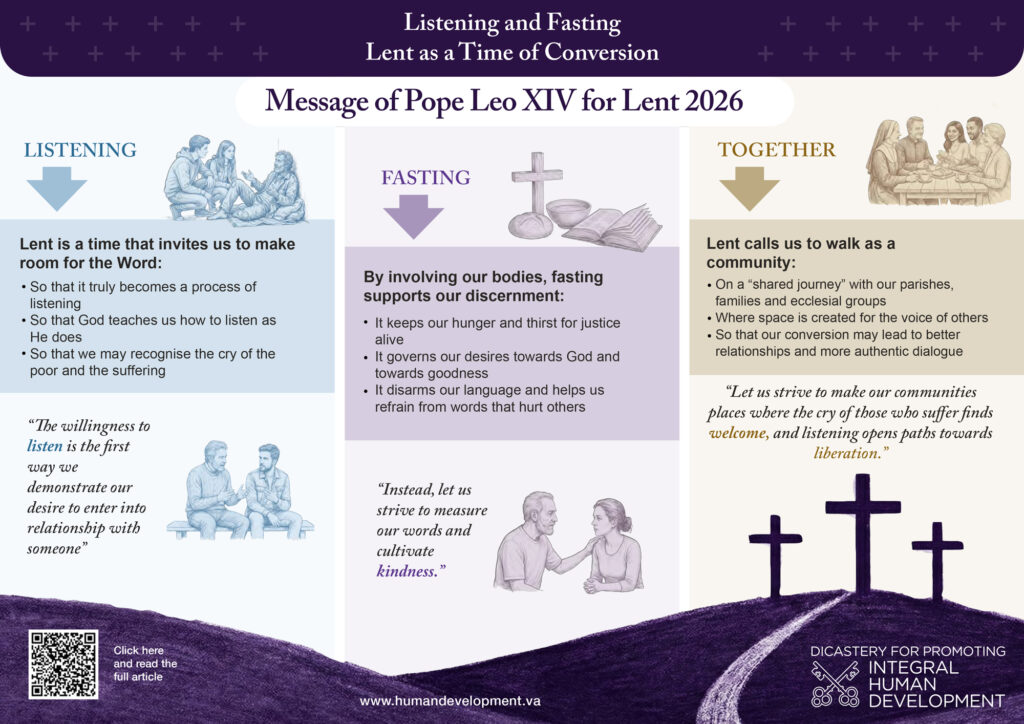
From the Vatican, 5 February 2026, Memorial of Saint Agatha, Virgin and Martyr
LEO PP. XIV
Once again, Manos Unidas, a Spanish Catholic organization that raises funds to help people around the world, has launched its campaign against hunger. With the slogan “Declare war on hunger,” it has called on people to combat the structural causes of poverty, inequality, and injustice.
For our part, we continue to collaborate as volunteers in the campaign, helping to raise awareness about these realities.
Our role is simple: to bear witness to our missionary life and explain firsthand some of the projects we have seen financed by Manos Unidas in our mission. This is not just any organization, but the way in which the Spanish Church is committed to the realities of impoverished countries and collaborates with them. Most of its funds come from this campaign, which is carried out by parishes throughout Spain every second Sunday in February, and it is time to report on it to all the people who offer their help each year.
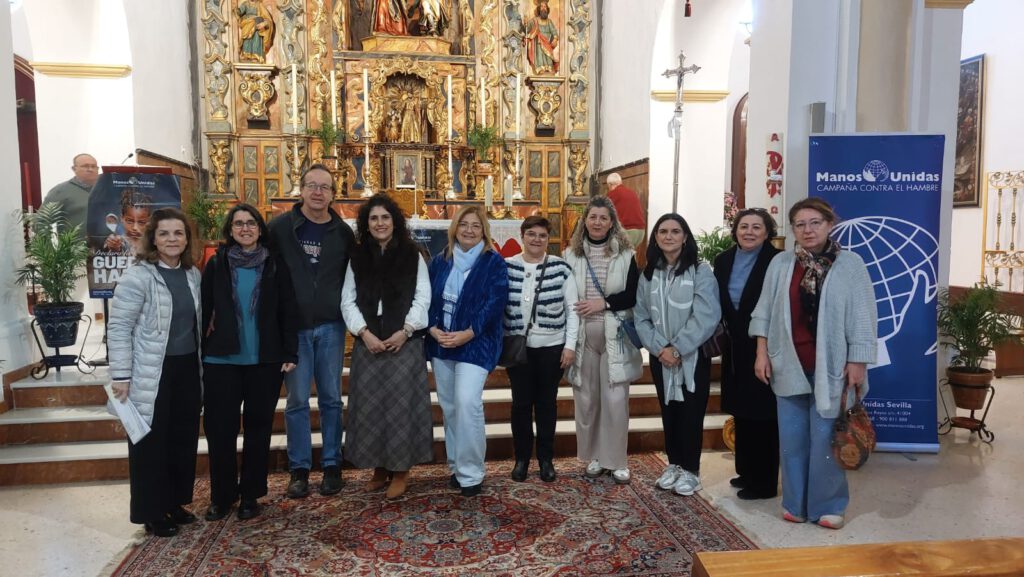
This year we have had the opportunity to visit several parishes. Often what we do is attend weekend Masses and share our mission experience and the realities of different countries where we have been as missionaries at the end of the Eucharist or after the homily.
It is very nice to see how in some parishes, such as La Encarnación in Bormujos (Seville), the whole community gets involved in the campaign. Catechists, children, and young people work during the week to help raise awareness in the community, while volunteers organize charity markets or activities such as hunger dinners.
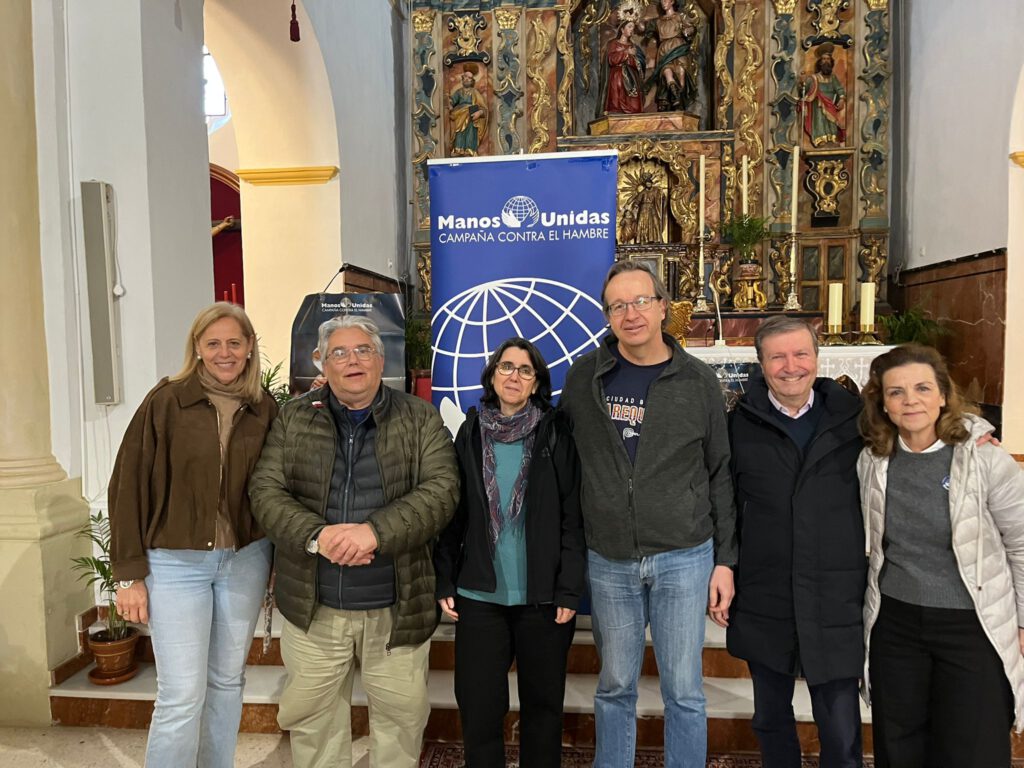
Also, in the parishes of Cerro, Ascensión, and Los Ángeles in Seville East, the volunteers of Manos Unidas and the parish priests lovingly prepare the Masses for that weekend. At the last one, we not only had the opportunity to share in the Eucharist, but also to give our testimony to the adult catechesis group. It was an hour in which we were able to delve deeper into these realities and share photos and a deeper understanding of the causes of these situations and the struggle these countries are undergoing to move forward. In reality, our help as missionaries or our support for certain Manos Unidas projects is nothing more than support for the work and sacrifice that the communities carry out. These communities are the real protagonists and the ones who teach us so much about resilience, about not losing hope, about being creative when you have few resources. We learn so many things from them that it is only fair to share them with our communities of origin at this time.
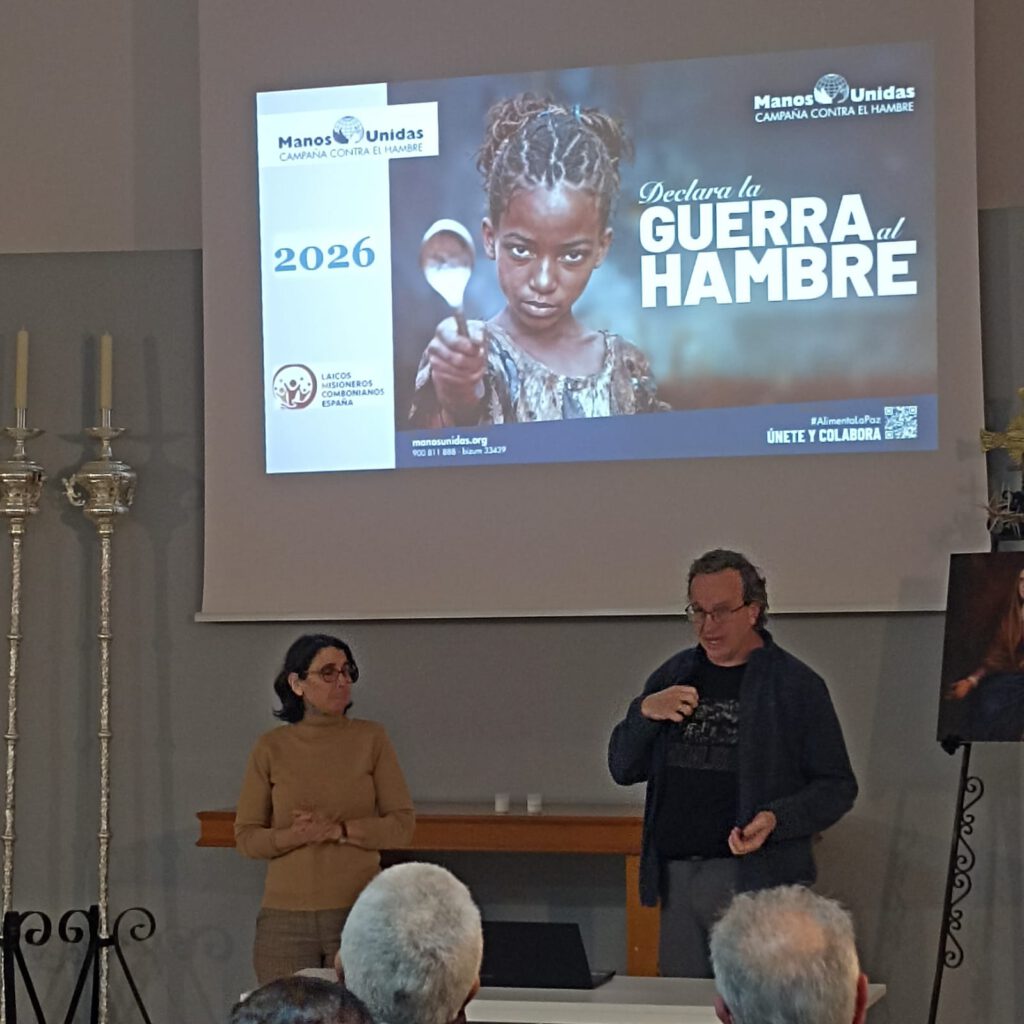
We hope that the faith and energy they show will also revitalize our communities in Spain and that we will be able to collaborate in building a more just world for all.
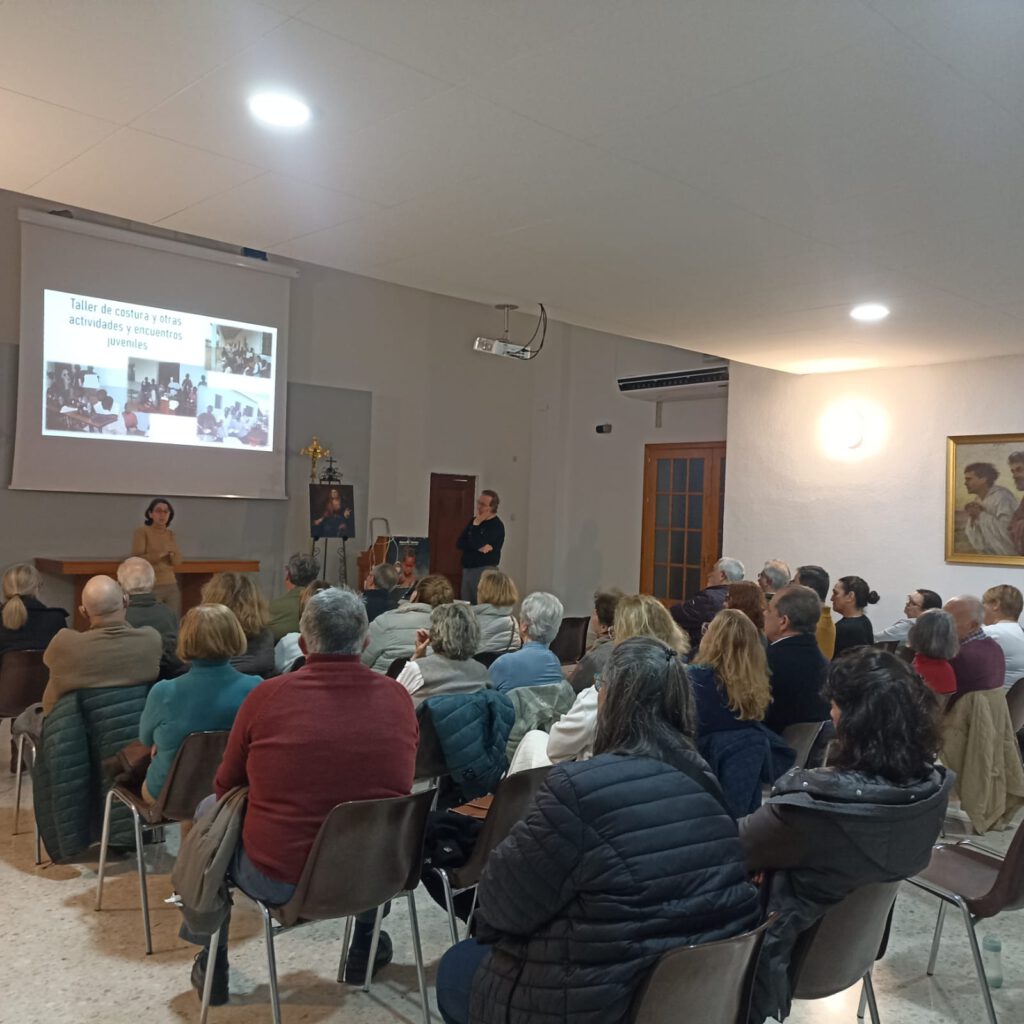
Best regards, Alberto and Maricarmen.